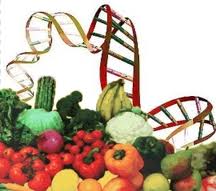 The explosion in genetic and biological information presents an opportunityto explore, and ultimately exploit for health benefits, the inter-individualdifferences in the body’s ability to metabolise, and respond to, nutrients. This has led to the concept of personalised nutrition as opposed to public healt nutrition—the ‘holy grail’ of individualised dietary recommendations for optimal health. Using examples from micronutrient and lipid metabolism, this article assesses the scientific progress in our understanding of genetic influences on nutrition and its impact on risk of multifactorial diseases, and identifies the implications of research to date. Genetic variants that influencenutrient metabolism have been identified, but individual variants have notbeen conclusively linked to the risk of multifactorial diseases such as cancerand cardiovascular disease. Increasingly, it is realised that multiple variants influence nutrient metabolism and health outcomes. There is a need for quantitative assessment and mathematical modelling of multiple genetic effects. It is likely that personalised nutrition will not have the dramatic impact that was once expounded but will in the future, as we understand the complex influences of genetics, and impinge on the work of medical practitioners and dietitians by improving their ability to provide individual dietary advice and by contributing to the development of biomarkers.
The explosion in genetic and biological information presents an opportunityto explore, and ultimately exploit for health benefits, the inter-individualdifferences in the body’s ability to metabolise, and respond to, nutrients. This has led to the concept of personalised nutrition as opposed to public healt nutrition—the ‘holy grail’ of individualised dietary recommendations for optimal health. Using examples from micronutrient and lipid metabolism, this article assesses the scientific progress in our understanding of genetic influences on nutrition and its impact on risk of multifactorial diseases, and identifies the implications of research to date. Genetic variants that influencenutrient metabolism have been identified, but individual variants have notbeen conclusively linked to the risk of multifactorial diseases such as cancerand cardiovascular disease. Increasingly, it is realised that multiple variants influence nutrient metabolism and health outcomes. There is a need for quantitative assessment and mathematical modelling of multiple genetic effects. It is likely that personalised nutrition will not have the dramatic impact that was once expounded but will in the future, as we understand the complex influences of genetics, and impinge on the work of medical practitioners and dietitians by improving their ability to provide individual dietary advice and by contributing to the development of biomarkers.
European Journal of Clinical Nutrition (2013) 67, 430–435; doi:10.1038/ejcn.2012.145; published online 24 October 2012 J Hesketh1
Institute for Cell and Molecular Biosciences and Human Nutrition Research Centre, The Medical School,
Newcastle University, Newcastle upon Tyne, UK
Correspondence: Professor J Hesketh, Institute for Cell and Molecular Biosciences and Human Nutrition
Research Centre, The Medical School, Newcastle University, Framlington Place, Newcastle upon Tyne NE2 4HH,
UK. E-mail: j.e.hesketh@ncl.ac.uk
info innovation diet
